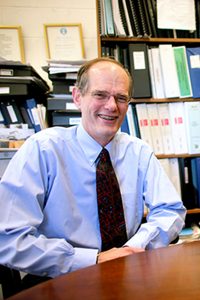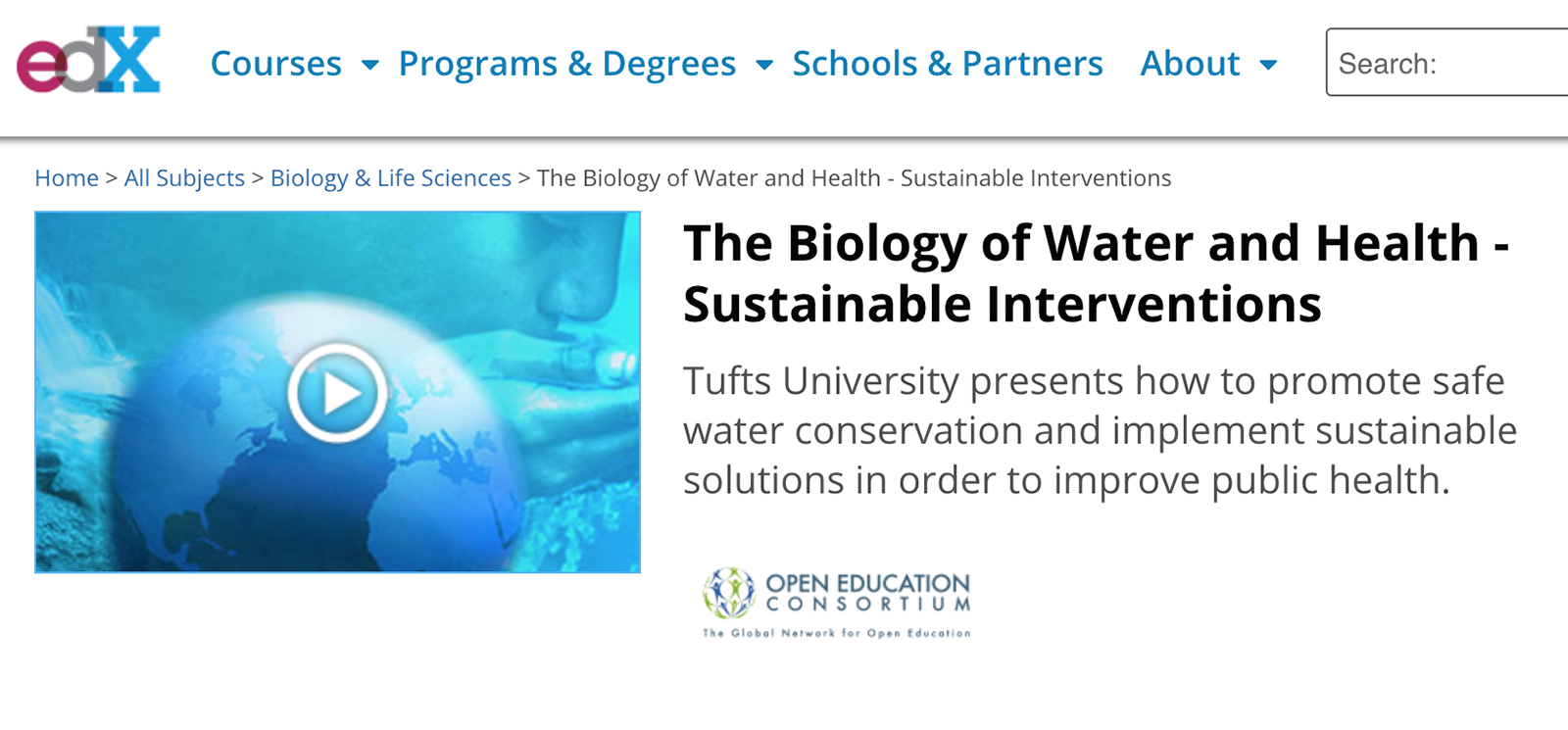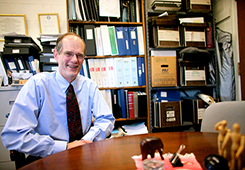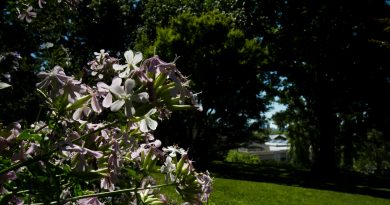The “Unmet Student”: Thoughts on Teaching a Massive Open Online Course
Dr. David Gute, Professor in the Department of Civil and Environmental Engineering, recently co-taught a two-part Massive Open Online Course (MOOC) on The Biology of Water and Health. As Part Two of the course draws to a close, Dr. Gute reflects on the experience of teaching a worldwide audience.

You and Jeff Griffiths have offered this interdisciplinary course for the past decade. What goals did you hope to achieve by teaching Tufts’ first MOOC?
My goals were three-fold.
- To educate myself about the capabilities and challenges afforded by the technologies present in the MOOC format. My motivation here was for my pedagogical means of delivery to remain current and relevant.
- The second motivation for me was for my University to become conversant with how to launch such content. A takeaway from the entire process is the incredible skill and dedication that must be present in the technical support necessary to successfully produce content within the MOOC format.
- When viewing the institutions present in the edX system (link is external) I was struck that if Tufts truly aspires to a global presence it must play in such leagues. It must be present.
A final result of this course was remembering why I so value my partner, Jeff Griffiths, in this enterprise. It was wonderful to take on challenges that filled us both with anxiety. The learning is real and powerful. Thanks Jeff. A final thank you also needs to be extended to the wonderful guest lecturers from Tufts and from afar. Their contributed wisdom and enthusiasm was greatly appreciated.

What is different about teaching to a massive global group of students who you have never met?
The unmet student was certainly an initial hurdle and conundrum. When I talked with present Tufts faculty who were active in online (non-MOOC) learning they told me there would be things that I would learn about my online students that would never be broached in a residential class. I thought this was not likely and anticipated a kind of formless exchange with individuals who would have no sharp edges or clearly defined attributes. Quite the contrary. Online students – perhaps unique to the anonymity provided by the MOOC environment – volunteer information and state beliefs that are usually not as forthcoming or as evident in “live” classes that I have lead in my 25 years of instruction at Tufts.
What opportunities and challenges have risen for the residential course as a result of your MOOC teaching experience?
This has been one of the larger challenges faced by me as an instructor with a residential course taking place at the same time as the MOOC. In my first attempt to engage students in the residential course I was likely too excited about encouraging and perhaps caused my on-campus students to feel a bit strange about diving in. In the next iteration of this I have perhaps been more cautious in involving the residential students with the MOOC global participants. One carefully de-limited exercise that worked quite well was the sharing of photos taken by MOOC participants of their specific water source. We received a great number and the range and breadth of these submissions were captivating to the residential students.
A significant opportunity has been realized in my having the ability to more carefully reflect on my teaching, my delivery, and my body language. These qualities have been made more apparent to me and have re-energized my presence in the “residential” classroom. In addition the wondrous power and sweep of inclusion found in the range of MOOC participants is truly inspirational to me as an educator interested in advancing public health knowledge and action around the globe.
The Biology of Water and Health – Fundamentals and The Biology of Water and Health – Sustainable Interventions are available as archived courses at edx.org.




